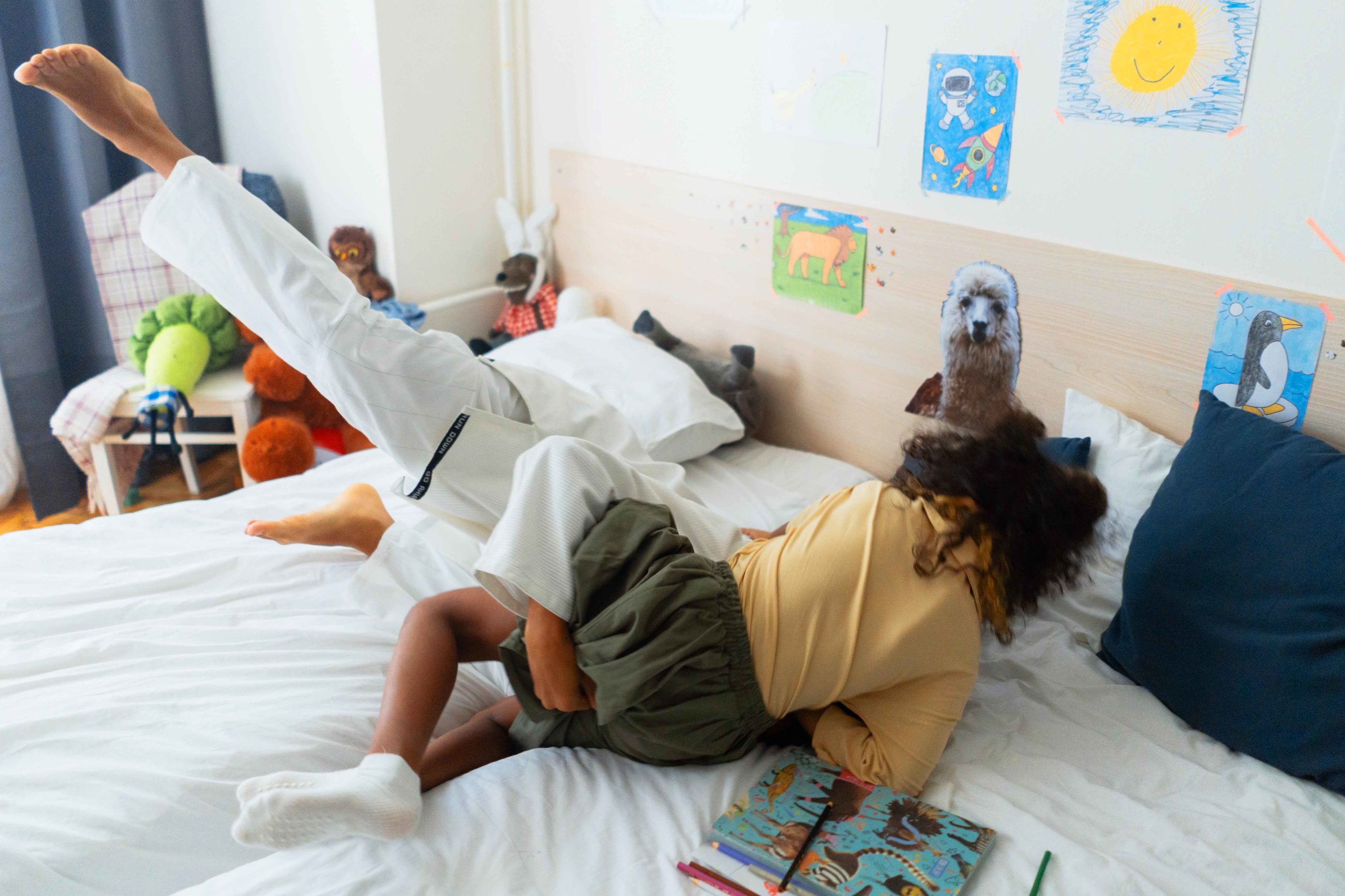Arguments. The pebble in every parent's shoe. We always want our children to get along well, to be accomplices, and we can get frustrated when things don't go as planned. And the shouting! If only it would stop. What do you do when your youngest is always bickering with his sister and your head is ready to explode? I don't have a magic wand (yet) (I'm still an optimist), but I'll share with you what I've learned over the years, and what I wish I'd known sooner.

They're inevitable
So yes, we know. But knowing it and feeling it are two different things. Living with a sibling is living with a roommate you didn't choose. Imagine if, when you move in, your roommate tells you that the landlord has asked you to share EVERYTHING with him. It's not easy to keep your cool when he takes away your phone, your plaid or your favorite breakfast bowl. If you think about it, it's more of a miracle that the kids get along than a scandal that they argue.
They're useful
Thanks to all these spats, children learn to defend their point of view, to decide what's acceptable or not, to negotiate, to be careful about the words they use, to apologize, to forgive, to manage their emotions. Learning all this takes time, and therefore our patience. In our case, the arguments had a bonus purpose: to get our attention. Later, they would understand that offering us a square of chocolate would have been much more effective.
It's actually their problem
The turning point in managing the arguments was realizing that the conflict was between them, that the problems they were having didn't concern us. The noise could affect me directly and that could become a problem, but the conflict itself wasn't MY problem. So why was I rushing into the middle of it? When there was physical violence, yes, but otherwise, why did I systematically become the referee of a game I didn't want to play?
Our method
All this led us to the following realization: arguments can't be managed, they have to be accompanied. We moved from the role of policeman/referee to that of coach (they were 3, 5 and 7 at the time, so it took us a while).
First, we dealt with the urgency of stopping the physical violence, following the recommendations of a fellow educator. We set limits. Beatings were okay, but not on the face or below the belt. We told them they'd have to find something else to get our attention. I admit, we weren't at all confident in doing this, but we were ready for anything at the time. In the end, magic, it worked, the shots stopped.
Then we set up a mediation method (remember, coach, not referee). We fumbled around for a few years, and ended up using this method:
- Waiting to see if they can manage on their own
- If necessary, we calmly invite them to express their problem in turn.
- We encourage them to find a solution together (sometimes we make suggestions, but the goal is for the solution to be theirs, not ours).
- Later in the day, we ask them what they could have done differently to avoid the argument.
The arguments didn't disappear overnight, and of course there are still regular ones, but we followed this method and it helped us put up with them, while reducing their frequency and intensity. Little by little, they've learned to cope on their own, following the method they've gradually internalized. Our eldest has even become a mediator at his old school!
And if, despite all that, you still can't stand the noise of arguing, I'd also recommend some good noise-cancelling headphones with a cool podcast in your ears. It won't solve the problem, but it'll help you put up with it! And that's something.


Hélène Girard
Mom of three boys aged 10, 12 and 14
www.famille-o.com
Instagram
helene@famille-o.com





















Share this article